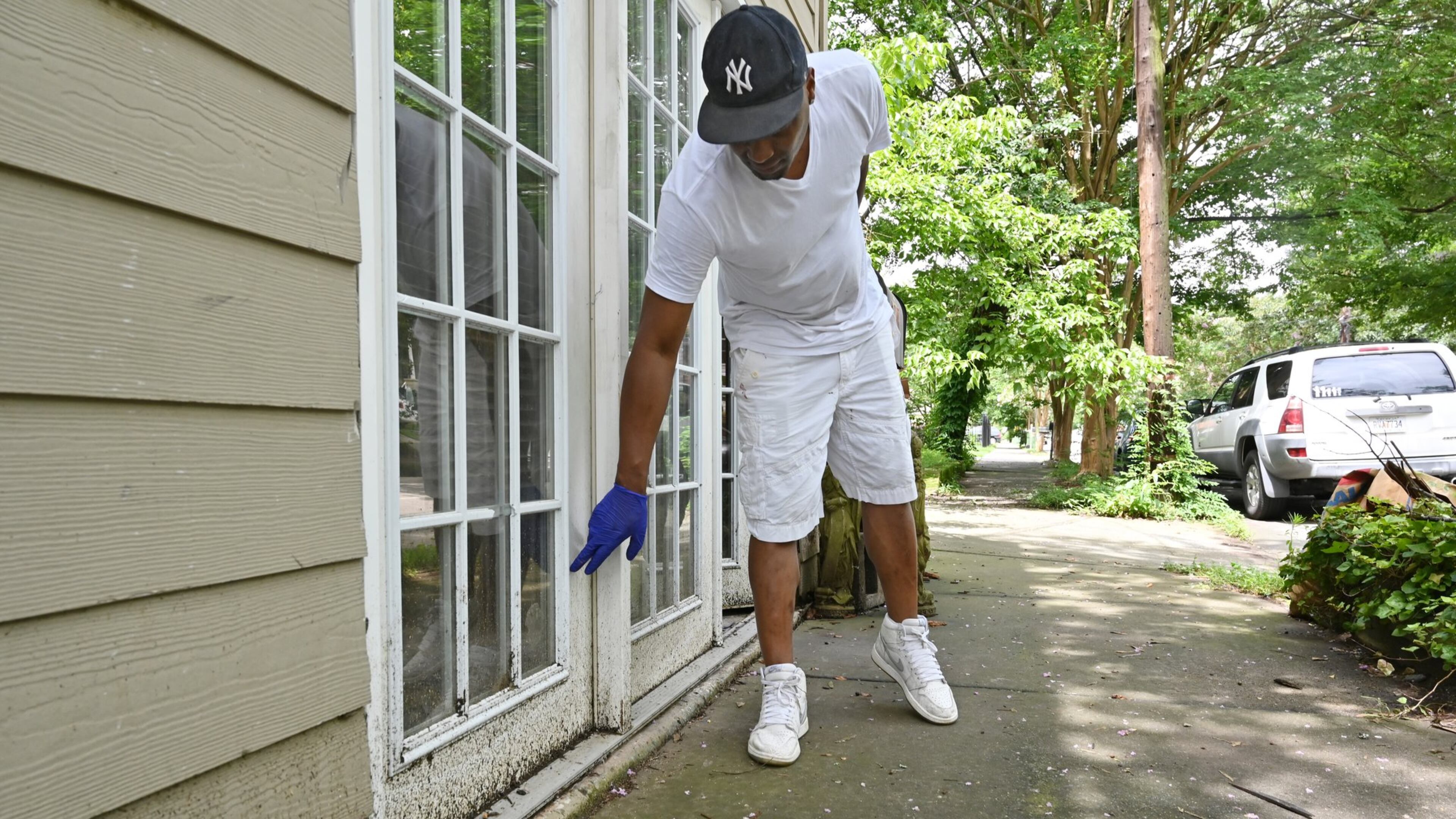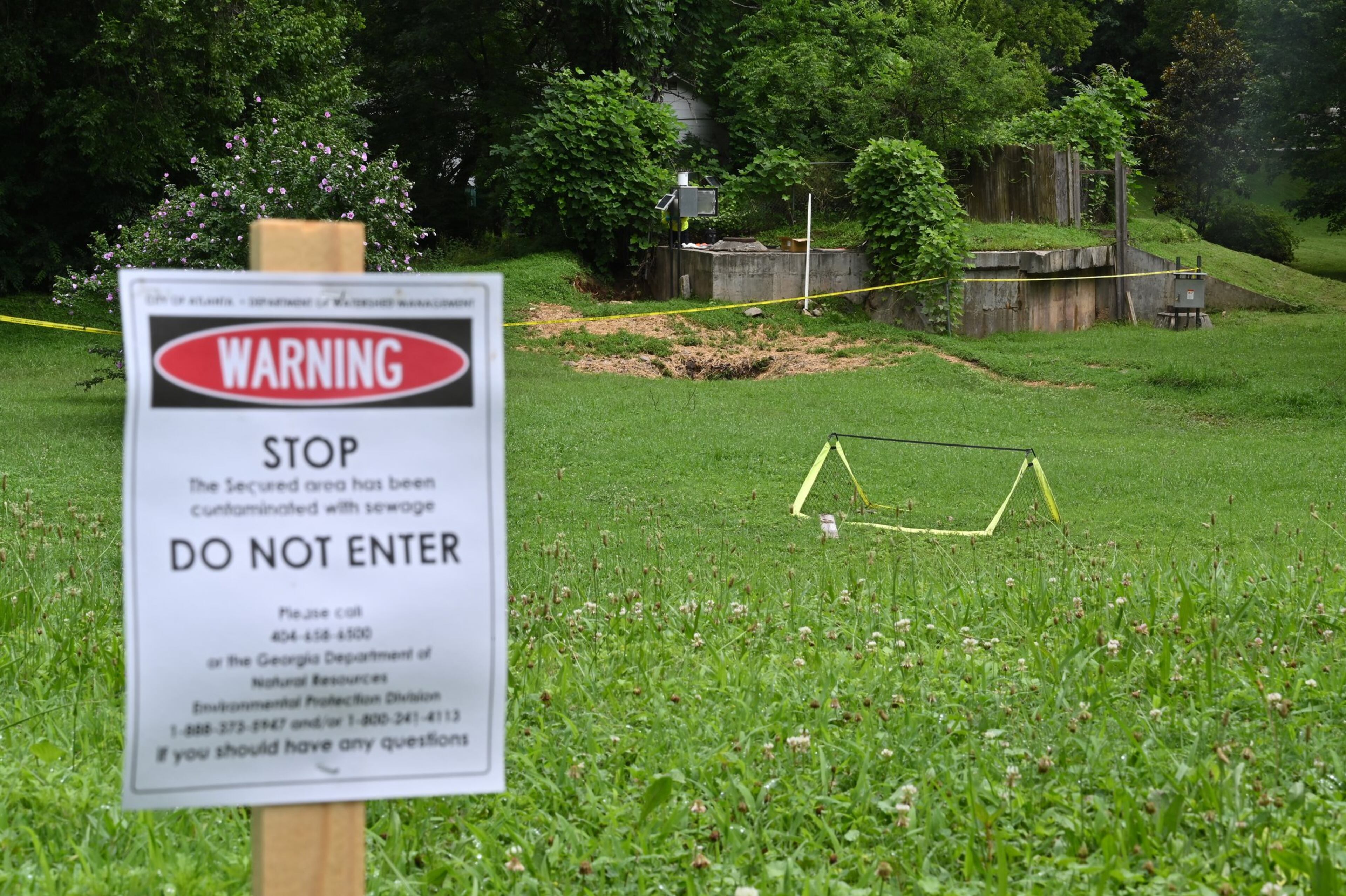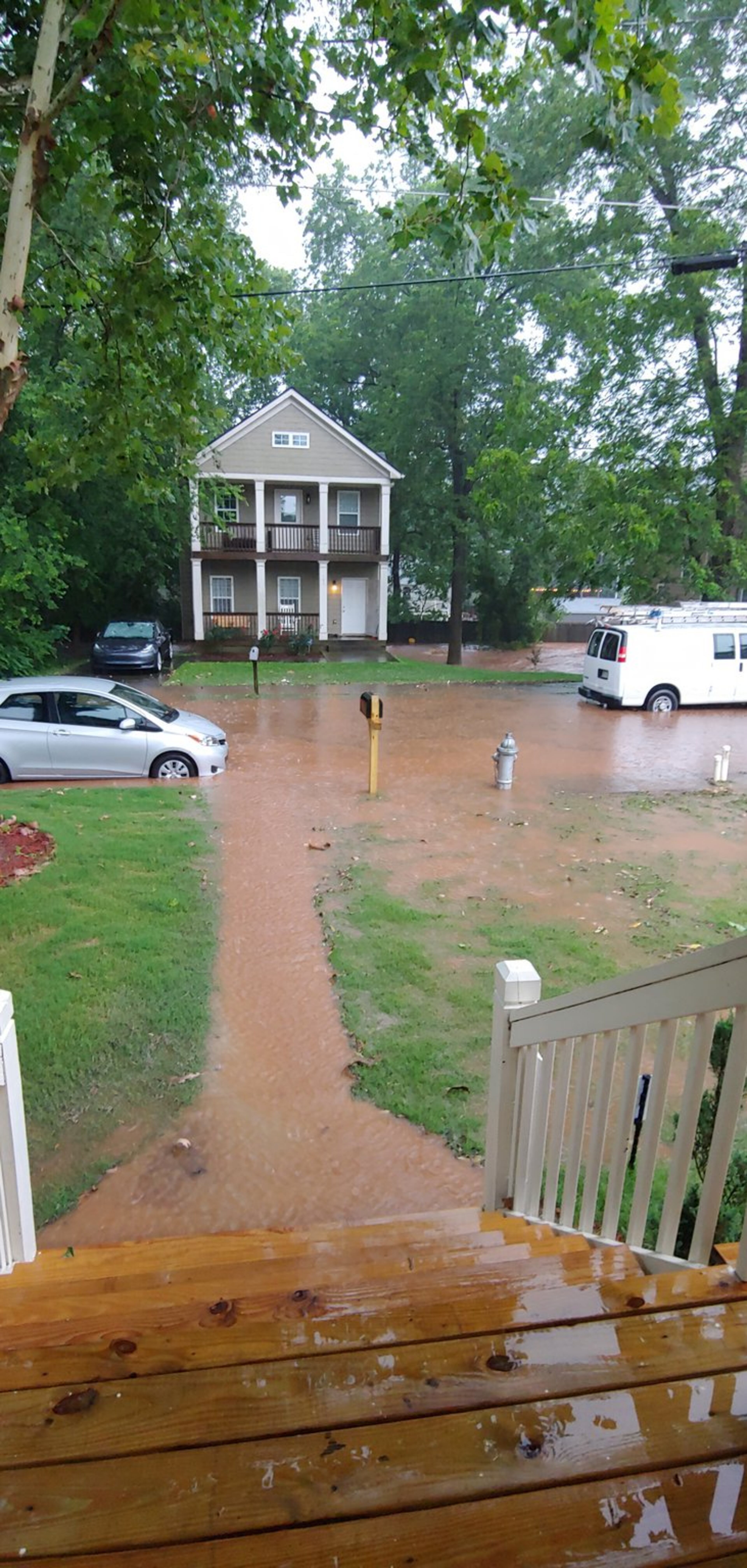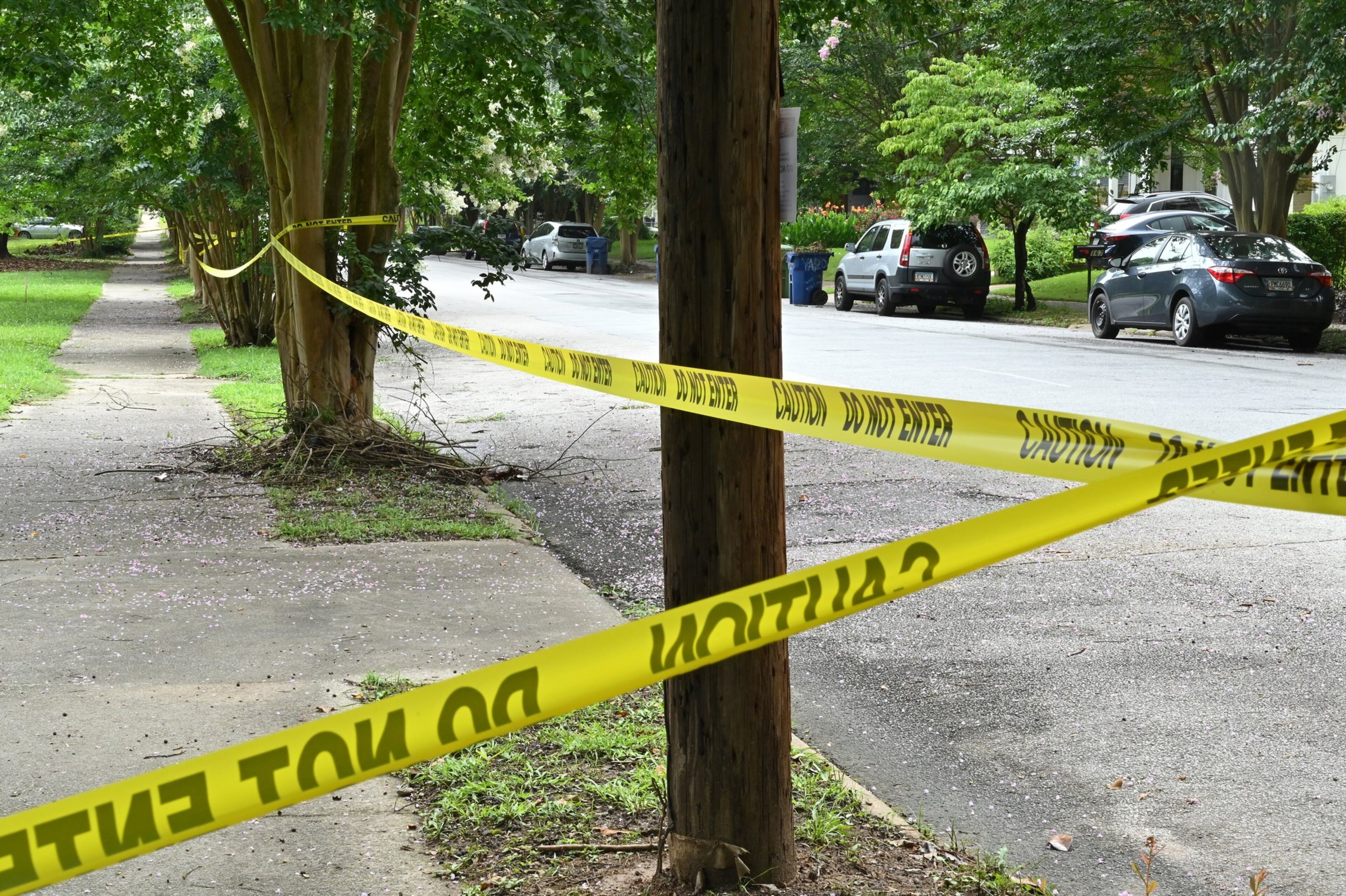No simple solutions to stormwater challenges

It doesn’t take much rain to turn small tributaries running through Johns Creek into rushing rivers. Tom Corrigan has watched for more than 20 years as increasing amounts of water drain from schools, shopping centers, office complexes and new subdivisions into his neighborhood. When he first moved to Medlock Bridge, he could jump over the creek behind his home. Now the creek is deeper and wider than it has ever been, he said.
Above-average rainfall each month from January through May has left neighborhoods across metro Atlanta all wet with flooded homes and streets and overflowing creeks and streams and has highlighted the many problems municipalities face in managing stormwater.
Stormwater runoff, rainwater that washes across hard surfaces such as streets and rooftops collecting pollutants before it flows into waterways, accounts for at least 80% of all water pollution, according to some estimates. Stormwater management programs have historically focused on cleaning up the water before discharging it into waterways, but what residents are most concerned with is the flooding it causes. Rapid development and outdated infrastructure along with the higher-than-average rainfall have led to overflows and flooding in many communities, making stormwater management one of the most challenging water quality issues in metro Atlanta.

“The average resident is less concerned about phosphorus in the reservoir than they are about their driveway collapsing,” said James Moore, stormwater specialist at the Georgia Association of Water Professionals. “There is a tension.”
That tension has led to countless court battles between metro area residents and local governments over stormwater with some cases dragging on for years. Residents have sued officials over development projects, crumbling sewers and faulty storm drains that have led to flooding. Relatively slow progress in addressing these issues has left residents in many communities feeling frustrated. But new regulations could force a more aggressive shift to solutions that would reduce the amount of water flowing into neighborhoods.
>> RELATED: Roswell seeks $150K grant to improve stormwater quality
Last fall, the Metropolitan North Georgia Water Planning District, composed of 15 counties and 95 cities including metro Atlanta, updated a sample ordinance to align with the regulatory changes. The ordinance requires new and redeveloped properties in these areas to use methods that absorb the first inch of rainfall on site rather than allowing it to run into streets or storm drains. All members were expected to implement the standard by the end of this year.
>> RELATED: DeKalb County improving stormwater management with pond maintenance
Several years ago, the city of Atlanta made headlines for its investment in that kind of green infrastructure with what was believed to be the largest project for permeable pavement — porous pavement that allows rainwater to pass through it — in the nation. It was a few years after a severe flood in Peoplestown, Mechanicsville and Summerhill in south Atlanta. The city embarked on a plan that included installing rain gardens, bioswales — shallow trenches that naturally treat and slow runoff — and permeable pavement on certain streets as well as a 5 million-gallon water vault under Turner Field’s media parking lot. Additional plans called for another underground vault and a park and pond in Peoplestown, but progress stalled when several neighbors on the block declined to sell their homes. City officials and council members did not respond to questions about the status of the projects.
The initial vault in Turner Field and permeable pavers have helped reduce the overflows of water, residents said, but more help is needed.

Two weeks ago, 15 minutes of rain left some streets in Peoplestown and Summerhill flooded with knee-high water. Christian Tomas and his husband Julian Owyong had just moved into their dream home on South Avenue. They watched from the bedroom window as brown sludge rose in the backyard, lifting a wooden deck and leaving an inch of water in the basement and garage. That was the second time it happened. “It felt like a punch in the gut the first time,” Tomas said. “Now, the sound of rain is actually a trigger for us.”
>> READ MORE: Peoplestown residents to city: Fix our flooding problems
This week, Spencer Smith was still cleaning up water damage in his home on Ormond Street. On the trees nearby, police tape and signs from the state Environmental Protection Division indicated the area had been contaminated with sewage. Smith said this was the first time in years the water got up to 2 feet high. It was unclear exactly what caused the problem, and Smith was frustrated with the lack of communication from the city. “If you halfway fix the problem, then you don’t fix the problem,” he said.
One of the barriers to getting a handle on stormwater management can be funding. A 2019 report from the American Society of Civil Engineers found that Georgia spends $6 per capita each year on new or renovated stormwater infrastructure, substantially less than the $85 per capita recommended by the Environmental Protection Agency. There are more than 120 stormwater management programs throughout the state, but only 60 stormwater utilities that provide dedicated funding to those programs, Moore said.
>> RELATED: Fayette dissolves Stormwater Utility
Creating a stormwater utility in 2006 helped Gwinnett County improve the quality of its stormwater management program. “Instead of waiting for a pipe to fail or waiting for a call to come in, we were able to go out and look not just at structural issues but at pollution issues,” said John Butler, public education and outreach specialist with the Department of Water Resources.

In Atlanta, a proposed stormwater utility was defeated in 1999, but since 2004, a 1-cent sales tax on goods and services in the city has generated $1.876 billion to assist with the water and sewer improvements mandated by the federal government. Ten percent of the tax revenue is used for stormwater projects that address neighborhood flooding.
Since Corrigan first moved to Medlock Bridge in Johns Creek in the 1990s, the homeowners’ association, which is responsible for maintaining stormwater management systems on the private property, has spent $1.7 million on upkeep of its detention pond, a basin where stormwater runoff is held before being released into waterways. Corrigan, who supports the new regulations, wants the city to do more to reduce the amount of water coming into the neighborhood from public property. “The water comes off of pipes controlled by the county, and once it goes out of the right of way, it becomes your problem,” he said.
>> RELATED: Johns Creek releases $400K for stormwater basin repairs
Ben Song, community relations director for Johns Creek, said the city has focused more on stormwater management over the past year and recently completed a citywide stormwater system assessment. The City Council is currently reviewing the results and considering changes to the city's stormwater maintenance policy, he said.
Jason Dozier, vice president of the Mechanicsville Civic Association who serves on a task force of developers, city officials and landowners to address the ongoing stormwater concerns in his area, said what is really needed to move forward on stormwater management is leadership. “People only think about stormwater when their house is flooding, and until it becomes a citywide issue, it won’t get a lot of attention,” he said. “Nobody is sounding the horns or making that their No. 1 campaign issue.”
RAINFALL SCORECARD
Monthly rainfall this year compared to the 30-year average from 1981-2010 (in inches)
January
2020: 8.01
30-year average: 4.20
February
2020: 10.58
30-year average: 4.67
March
2020: 7.45
30-year average: 4.81
April
2020: 4.61
30-year average: 3.36
May
2020: 4.19
30-year average: 3.67
Source: National Weather Service (Peachtree City), NOAA



